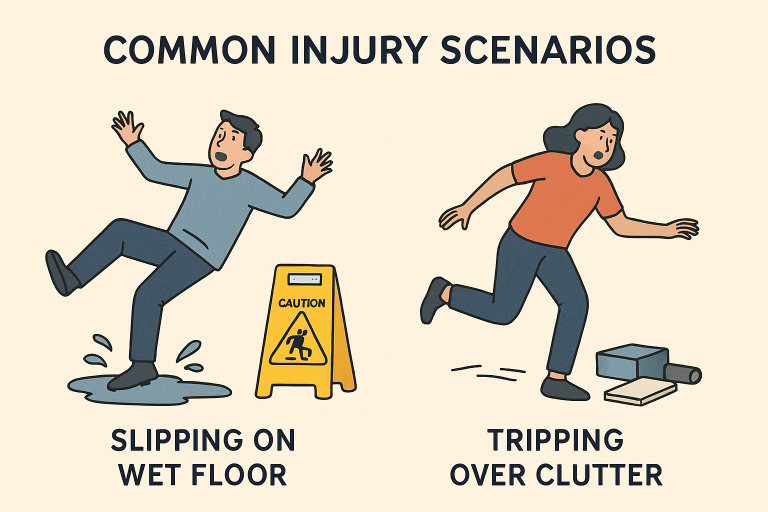Initiating divorce proceedings involves certain steps regulated by the current legislation. What aspects should be taken into account? Find out in this article.

Pre-trial meetings and negotiations
The trajectory of a San Diego uncontested divorce is heavily influenced by the outcomes of pre-trial meetings and negotiations. The efficiency of the divorce proceedings hinges on the ability of both parties to reach agreements through negotiations, which can substantially minimize courtroom time. Should the initial stage fail to yield consensus or if there are unresolved disputes that resist out-of-court resolution, the case moves on to trial. It’s crucial for individuals undergoing a divorce to recognize that successful negotiations play a pivotal role in streamlining the process and preventing unnecessary time expenditures. Nevertheless, in certain cases, a court hearing becomes unavoidable due to lingering conflicts.
Presentation of evidence by both parties
During this stage of the divorce proceedings, it is important that each party is prepared to present well-organized evidence. It is advisable to work closely with your lawyer in collecting relevant documentation and identifying potential witnesses.
This stage should be carefully prepared so that objections can be raised if necessary if certain evidence is inadmissible. Evidence is presented through direct examination followed by cross-examination of the opposing party. Each party must adhere to proper courtroom decorum when presenting its arguments and examining witnesses at this stage of the trial.
Witness testimony and cross-examination
It is very important for persons going through divorce proceedings to prepare for possible problems during cross-examination. It is necessary to remain calm and balanced when answering questions from representatives of the other party and the court. Cross-examination is intended to test the reliability of the witness and is not personal.
The judge presiding over the divorce proceedings carefully considers all witness testimony along with other evidence before making a decision on the division of property, child custody arrangements, alimony payments, and any other issues in the case.

Legal arguments of lawyers
During legal disputes, attorneys must advocate for their client’s interests regarding property division, child custody, alimony, and other issues. The goal is to convince the judge that the solution proposed by your side is fair and legal.
It is important for individuals going through divorce proceedings to choose an experienced attorney who can skillfully articulate the client’s position and confront the other side. Convincing legal arguments can have a significant impact on the outcome of the divorce proceedings.
Expert testimony
In some divorce proceedings, expert testimony has an important impact on the outcome of the case. These experts include psychologists, forensic accountants, appraisers, and other specialists. Their testimony is based on their experience and provides valuable information on issues such as child custody, property valuation, or financial analysis. The court relies on expert testimony to make informed decisions that are in the best interests of all parties involved.
During a divorce, it is important for both parties and attorneys to carefully prepare for expert testimony. It is necessary to investigate the qualifications and credentials of each expert witness, as well as to anticipate potential disagreements between opposing experts. Invited experts may be cross-examined by both sides to challenge or verify their testimony.
This testimony has a significant weight in what happens at divorce trial, as it contains objective data supported by professional knowledge and experience. It is important to remember that judges have the discretion to consider this evidence along with other evidence presented during the trial. The judge will make the final decision based on a comprehensive evaluation of all the evidence.
Court decisions on child custody and visitation rights
One of the most important stages in a divorce is the court’s decision on child custody and visitation rights. The judge takes into account the child’s best interests, the relationship with each parent, and any evidence presented regarding the parent’s fitness or misconduct. It is important that both parties present convincing arguments, supported by evidence, that demonstrate their ability to provide a safe and nurturing environment for their children.
Once the court makes a decision on custody and visitation rights, it becomes legally binding unless there are significant changes in circumstances that require adjustments. Both parties are expected to comply with these orders, and failure to do so will have legal consequences.
According calgaryfamilylawasso

Determining the amount of alimony
The judge will carefully consider all the evidence, along with testimony from both parties, to determine whether and how much alimony should be awarded. Factors such as the level of financial security during the marriage and any contribution one spouse made to the other’s education or career development will be taken into account. The goal is to reach a fair solution that ensures that both partners can maintain an acceptable quality of life after the divorce.
It is important to consult with your attorneys about what evidence related to spousal support you need to provide. Having accurate financial information has a significant impact on the outcome of this aspect of the divorce trial process.
Property division and asset valuation
The judge also decides how to equitably divide marital assets between both parties based on state laws and individual circumstances. In some cases, an equal division is established, while in others, it may be determined that one party should receive a larger share due to various factors.
Working with an experienced attorney who specializes in family law will ensure that this issue is resolved fairly.
Alternative methods of dispute resolution
Before starting a divorce proceeding, the parties involved have the opportunity to familiarize themselves with mediation or other alternative dispute resolution methods. Mediation involves the involvement of a neutral third party who negotiates between the spouses in order to reach mutually acceptable solutions. These methods promote open communication and cooperation outside the courtroom.
During mediation sessions, each party has the opportunity to express their concerns, priorities, and desired outcomes. The mediator guides the conversation to find possible compromises. If successful, this process can save time money, and reduce the emotional stress associated with lengthy litigation.
If attempts at mediation or alternative dispute resolution do not result in satisfactory agreements, litigation is unavoidable. In such cases, it is crucial that the parties are well prepared – gathering the necessary evidence and understanding all aspects of the legal process.
The final decision and possible appeals
After presenting all the evidence and hearing testimony, the judge will review all the information provided before making a final decision. This will include provisions for property division, child custody, visitation schedules, spousal support, and any other relevant issues. It is important to note that either party may appeal this decision if they believe that there were violations during the trial. An appeal involves taking the case to a higher court, where a panel of judges will review the lower court’s decision for errors or injustice. Before filing an appeal, it is important to consult with your lawyer, as it can be time-consuming and costly.
























































































































